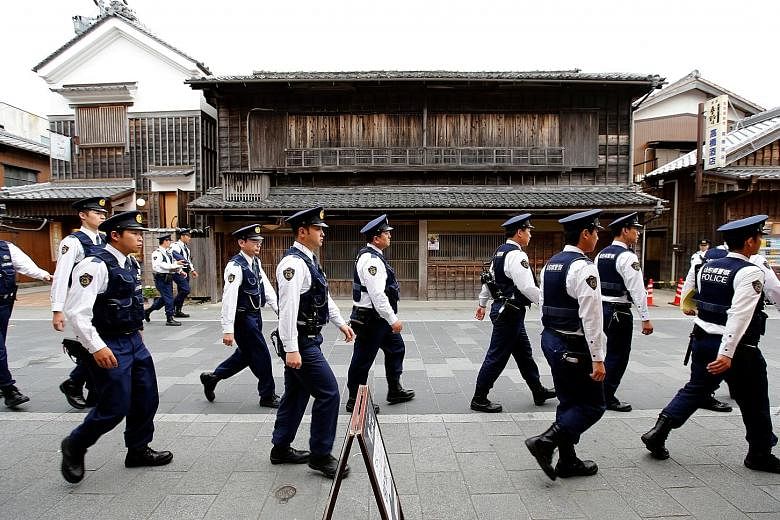Japan has vowed to boost anti-terrorism spending and hire more intelligence analysts after a cafe attack in Bangladesh killed seven Japanese aid workers this month. It has set up a panel to "discuss safety measures" for those involved in such international cooperation projects. A report is due next month.
"Thorough anti-terrorism efforts are urgently needed ahead of the 2020 Olympics and Paralympics", top government spokesman Yoshihide Suga has said.
Most terrorism experts who spoke to The Straits Times were scathing about Japan's response to the threat so far. Ten of its nationals were killed in the Algerian hostage crisis of 2013; another two were beheaded by Islamic State in Iraq and Syria (ISIS) extremists last year.
For all its institutional reforms, experts said, Japan is a novice in battling terror abroad. And though domestic efforts have been enhanced since the 1995 subway attack by doomsday cult Aum Shinrikyo that killed 12 and injured 50, there are loopholes that need to be tightened.
Last December, Japan launched the International Counterterrorism Intelligence Collection Unit, but it failed to identify the Dhaka threat.
The unit, said international security expert Masaki Mizobuchi, is "not a substantial organisation" as it is staffed by only 20 specialists in Japan and 20 more abroad. "The small and scratch team from various ministries (is) nothing but a mere gesture," said the Nagoya University of Commerce and Business professor.
As for the role of the Self-Defence Forces (SDF) in fighting
terror, some feel Japan's post-war pacifist Constitution limits this, although it was reinterpreted last year to let the SDF take part in collective self-defence with other countries' forces.
"In practice, Japan's role would be limited to offering advice while relying on another country's response team to rescue its citizens in a terrorist crisis," said Assistant Professor Sebastian Maslow, who teaches political science at Tohoku University.
However, University of Tokyo international security lecturer Chiyuki Aoi said the SDF should not be rushed into combat or hostage rescue situations overseas, noting a "huge capability gap". She said: "It has no related experience in hostage rescues, not to mention much experience operating abroad."
At home, there are institutions such as the National Security Council, National Policy Agency and Public Security Intelligence Agency to deal with terror threats.
The problem is a general apathy and lack of awareness among Japanese about the threat, said Keio University Associate Professor Ken Jimbo. He called for a greater security presence at railway stations and high-density public spaces, while Nihon University Professor Mitsuru Fukuda said more police surveillance cameras should be installed.
The Public Security Intelligence Agency was in the news last month when Japan's top court dismissed a suit against its routine monitoring of the local Muslim community of about 100,000. Police documents leaked in 2010 showed detailed profiles of 72,000 Muslims - down to bank account numbers - including 1,600 children at public schools.
Experts said this is a legacy of the Sept 11, 2001, terror attacks in New York, and the case comes amid government fears of an attack on local soil that have been fuelled by Islamist extremist attacks elsewhere.
Still, some feel the programme is disproportionate. Dr Maslow said: "The government has framed Islamist terrorism as a high-security risk since 9/11. This narrative has tempered public opposition to this surveillance programme."

